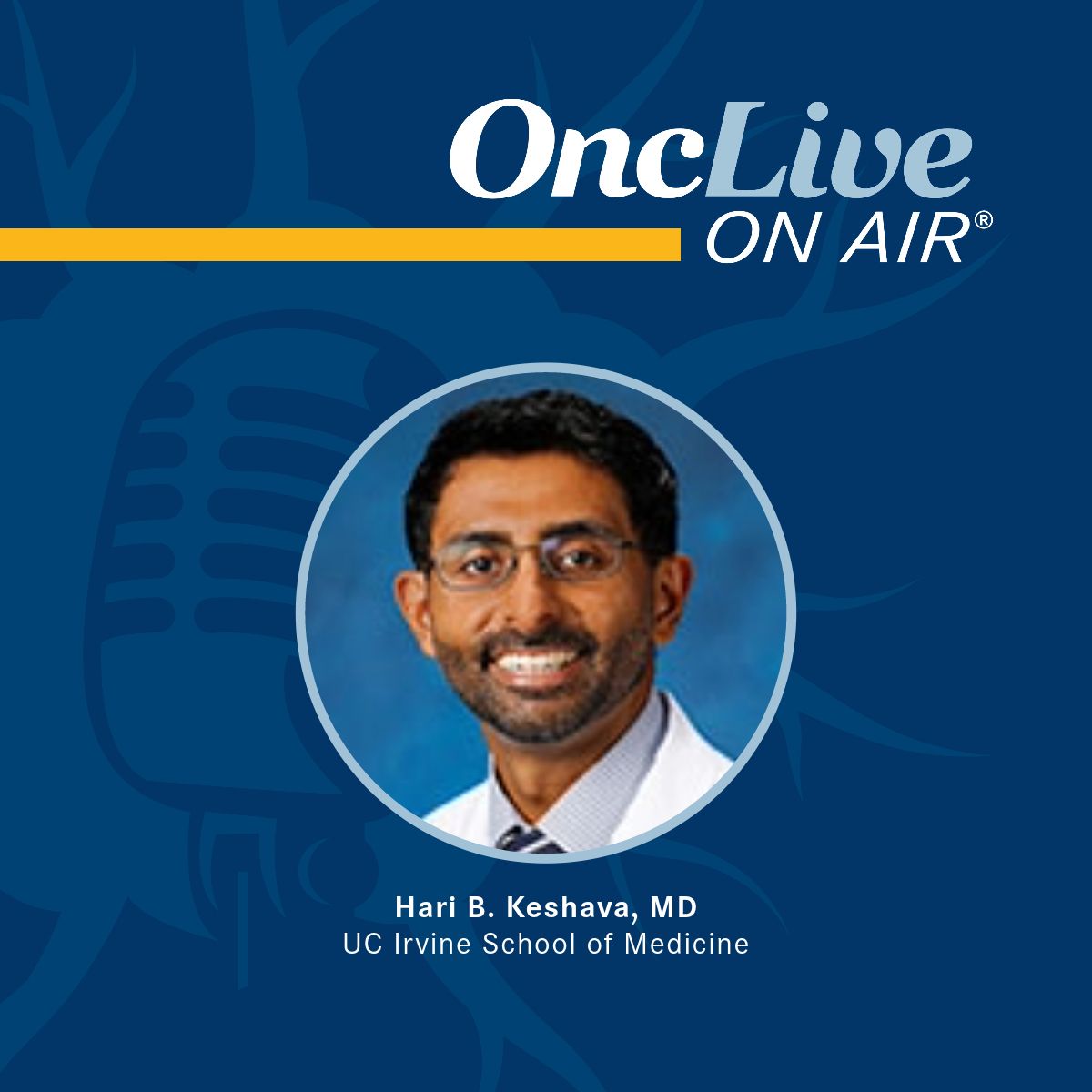Video
Dr Khalil on Benefits Derived From the POSEIDON Regimen in Metastatic NSCLC
Author(s):
Maya Khalil, MD, discusses the use of first-line durvalumab plus tremelimumab in patients with non–small cell lung cancer enrolled in the phase 3 POSEIDON trial, and sheds light on histologies and mutations that are associated with increased benefit with this regimen.
Maya Khalil, MD, assistant professor of medicine, Division of Hematology and Oncology, the University of Alabama at Birmingham (UAB), oncologist, O’Neal Comprehensive Cancer Center, UAB Medicine, discusses the use of first-line durvalumab (Imfinzi) plus tremelimumab (Imjudo) in patients with non–small cell lung cancer (NSCLC) enrolled in the phase 3 POSEIDON trial (NCT03164616), and sheds light on histologies and mutations that are associated with increased benefit with this regimen.
The addition of tremelimumab to durvalumab and platinum-based chemotherapy has improved patient outcomes in the treatment of NSCLC. The regimen received FDA approval in November 2022, providing another option to patients with metastatic disease who do not have sensitizing EGFR mutations or ALK aberrations. Notably, the approval was supported by data from the POSEIDON study.
Unlike the phase 3 CheckMate-9LA trial (NCT03215706), which examined nivolumab (Opdivo) and ipilimumab (Yervoy) plus 2 cycles of platinum-based chemotherapy vs chemotherapy alone in the frontline treatment of patients with NSCLC, those on the POSEIDON trial were randomized to receive 1 of 3 regimens: 4 cycles of the triplet followed by 4 weeks of durvalumab and maintenance chemotherapy, and another dose of tremelimumab at week 16; durvalumab plus 4 cycles of chemotherapy followed by durvalumab and maintenance chemotherapy; or 6 cycles of chemotherapy followed by maintenance chemotherapy, Khalil says.
Results from the trial showed that the triplet regimen provided a durable overall survival (OS) benefit vs chemotherapy alone, Khalil reports. Three-year OS rates were 25% and 13.6% in favor of the doublet regimen. Patients in the experimental arm experienced a median OS of 14.0 months (95% CI, 11.7-16.1) compared with 11.7 months (95% CI, 10.5-13.1) in the control arm (HR, 0.75; 95% CI, 0.63-0.88). Additionally, in the durvalumab and chemotherapy treatment arm, the median OS was 13.3 months and the OS rate at 36 months was 20.7%.
A subgroup analysis of OS according to patient histology showed that those with nonsquamous NSCLC experienced improved OS with the triplet vs those with squamous histology, Khalil adds. The 3-year OS rates were 31.4% vs 17.3%, respectively. Notably, the analysis also revealed a signal that those with co-alterations, including KEAP1 and STK11, derived benefit from the triplet regimen in this setting, Khalil states. However, these patients were more likely to develop primary resistance to immune checkpoint inhibitor monotherapy, she explains.
Based on these data, a dual checkpoint inhibitor and chemotherapy combination should be considered for patients with metastatic NSCLC who present with a KRAS or STK11mutation, provided that the patient can tolerate the therapy and they do not have any treatment contraindications, Khalil concludes.
Disclosures: Dr. Khalil reports serving as a principal investigator on trials in collaboration with/sponsored by: National Cancer Institute, Bristol Myers Squibb, Amgen, Top Alliance, Janssen, Cantargia, Guardant Health, Numab, Nitto BioPharma, Spectrum Pharmaceuticals, Eastern Cooperative Oncology Group (ECOG), Southwest Oncology Group (SWOG), Alliance cooperative group.









